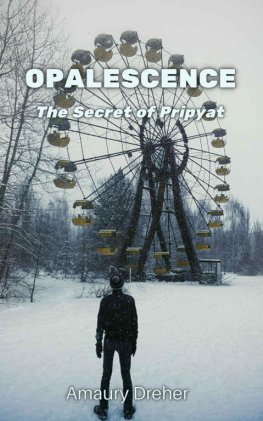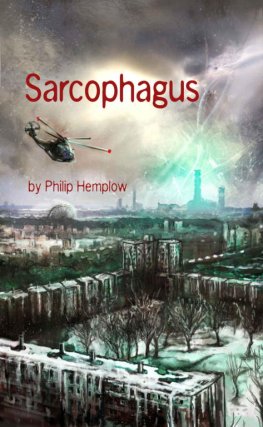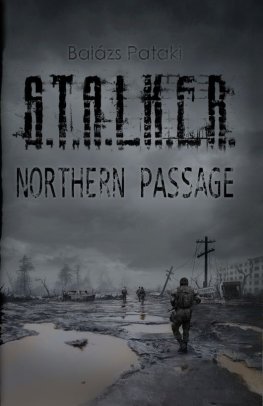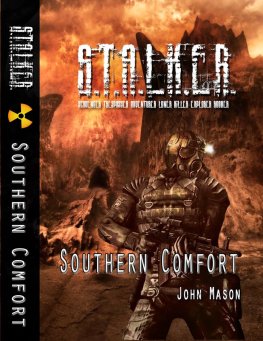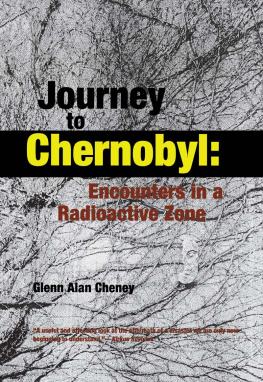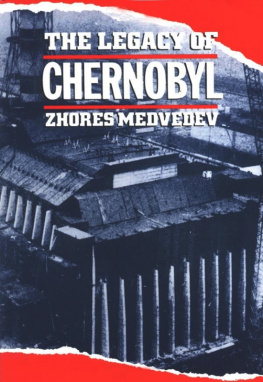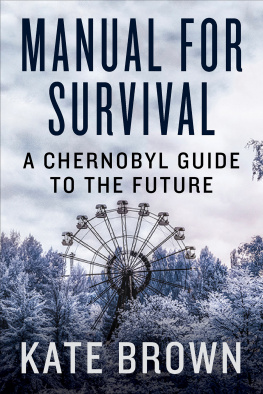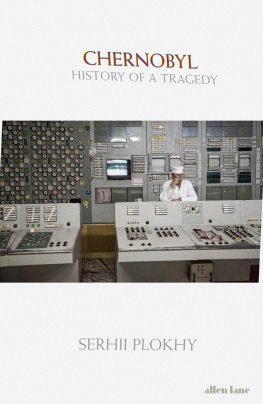Amaury Dreher
OPALESCENCE
THE SECRET OF PRIPYAT
To caffeine and wine, my most loyal allies in these nights of writing.
25 April 1986
The sun was high up in the sky. It calmly dominated the city in an almost proud way. Kids, looking cheerful, ran down wide avenues lined with pine trees with burning peaks. The clothes became lighter. A bucolic atmosphere spread, delighting the daily life of the inhabitants. Summer was approaching in Pripyat.
I was 8 years old at the time. Enveloped in this childish innocence, I led a peaceful and happy life in this Soviet country, which had seen me born and then grow up.
My father worked at the Chernobyl power plant as a maintenance operator. This nuclear power plant composed of 4 RBMK reactors with a power of 1000 megawatts was the pride of the USSR. As a symbol of Soviet modernity, it was also the guarantee of Pripyats prosperity. There, a large part of the inhabitants were bustling to operate the gigantic nuclear complex, while the rest of its population was employed in other strategic sectors such as manufacturing or steelmaking.
The industry was flourishing and the plant was producing the electricity needed for the region. For us, the fission of atoms was crucial. That was our future guarantee. No one then questioned this source of energy, which was essential to our development. In addition, two new reactors were under construction near the plant and the huge cooling towers that were elevating in the sky could already be seen.
My father was delighted: the activity was running at full capacity and the promise of a better life was on the horizon. My mother was a secretary at the city hospital. An industrious and introverted woman. She would soon have the right to rest, my little sister being born soon. His name had not yet been decreed, my parents had not agreed and my father was too occupied to think about it calmly. Every day, he was busy with enthusiasm, happy to go to work. He left the apartment in a meticulous manner, in a well-established routine, his perfectly ironed blue-grey plaid shirt and a few cigarettes in his pockets. A horribly bitter coffee for breakfast was the last stop before his departure. He parked daily in the 400-space car park dedicated to the plants employees and went to inspect the gigantic reactor No. 4 to detect and correct anomalies. His role was important, he guaranteed the safety of operations and the proper functioning of equipment. It was one of the components of the vast mechanism that ensured Pripyats success.
It must be said that life in Pripyat was pleasant. At least by Soviet standards we couldnt complain. Our apartment was cramped, but cozy. Without claiming luxury, we had all the necessary comfort. We would probably have to look for a bigger place to live when my sister is born, but that shouldnt be a problem. My family and I cherished this city.
While Pripyat was originally designed to house the huge workforce to operate the Chernobyl power plant, the city also had a showcase role, it was supposed to represent the urban modernism of the Soviet Union. Pripyat thus possessed all the contemporary equipment necessary for the well-being of its population: in particular a cultural centre, a cinema and dozens of shops where one could buy all kinds of handicrafts approved by the Party. There was no boredom in Pripyat. Of course, any comparison with a large western city would be absurd. Meat was extremely rare, if not completely absent, the press was not free and justice was a fantasy. However, some progress was emerging. The roar of modernity was familiar to us.
Education was not to be outdone: 15 primary schools had been built with a total capacity of 5000 pupils. Similarly, 5 middle schools and a high school completed the school system. Maternity, on the other hand, saw the birth of 1000 babies each year; enough to properly renew the population of Pripyat and meet the challenge of demography. Everything had been carefully planned, the high authorities had thought of everything. The city was flourishing and particularly young. The average age of its population was estimated at 26 years. A certain dynamism was emerging, suggesting hope for a bright and promising future.
Located 130 kilometres north of Kiev and 17 kilometres from the Belarusian border, the Chernobyl site was chosen for many practical reasons, such as the topology of the area. The nearby river provided cooling for the reactors during their operations and offered the promise of an efficient river navigation.
My family arrived in Pripyat exactly seven years ago. So I had no memory of my previous existence, of my first trials and errors as a human being. I had grown up in the same neighbourhood and my childhood had been shaped by this routine, this Soviet and contemporary way of life that Pripyat was trying to embody. At least thats what we were learning in school. A modern city, for a great country that dominates the world.
Thus Pripyat would be the cradle of a utopia, a beautiful illusion where communism flourished joyfully and without hindrance.
At this time in April 1986, I was looking forward to the opening of the fair, which was imminent. The bumper cars had been installed and proudly displayed in plain view. Swings were available in the parks and most of them were already ready for use. The famous Ferris wheel had carried out some rotation tests and stood triumphantly in the sky of Pripyat, its small yellow suspended pods attracting the attention of the curious. Everything was ready for the inauguration in a few days. The kids were rejoicing, eager to take on this carefree lightness. They dreamed of crowning their childhood with aerial escapades, contemplative pleasures in the sky of Pripyat.
26 April 1986
The inauguration of the fair never took place. Officially, the Pripyat Ferris wheel had never worked. No children had boarded it.
My first memory of the disaster was from a mathematics class. On that ordinary day, I went to school as usual, reluctantly, with a grumpy mind. The day was pure and cloudless. We were doing a myriad of calculations, each more boring than the next, when someone knocked frantically at the door. I remembered perfectly the gravity that animated the directors face when he suddenly entered the classroom, mountaineering our teacher. Together, they talked at length in the corridor, allowing us a few minutes of improvised heckling and anarchy. Notebooks were flying, ink was spilling, we were madly happy with the lack of authority, a temporary but total freedom.
The teacher finally reappeared at the door, armed with her usual dumb smile. She gave us tablets: candies to congratulate us on the work we did during the year. The Party was generous, we were happy. These solutions of radioactive iodine were actually intended to prevent the devastating effects of the radiation that was being propagated without everyones knowledge. The teacher herself was unaware of the seriousness of the situation. She had vaguely understood that an accident had occurred and that some remedies should be given out as a precaution. The director had not been too cluttered with details. Panic had to be avoided, security distilled and calm ensured without betraying the secret of the crucial information he held. The Glasnost praised by Gorbachev found its limits. The rest of the class went smoothly and we were allowed to leave the school.
When I came home from school, I noticed a change of atmosphere in the streets. The morning lull had turned into an almost invisible, but palpable tension. Some rare adults had nervous behaviour. They spoke quickly and loudly, scratching their heads continuously as if they were looking for an answer to an unsolvable problem. The others went about their business without expressing any concern, suggesting that what was going on did not concern them or was not of sufficient importance to them.

